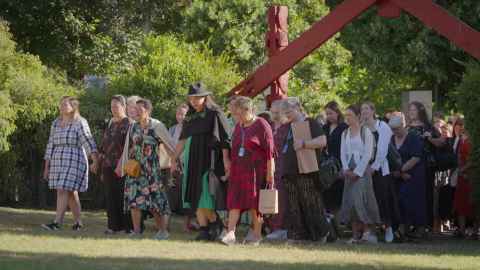Boost to nurse practitioner numbers
19 March 2024
Te Whatu Ora increase support for Nurse Practitioner Training Programme.

In 2024, 121 places for the Nurse Practitioner Training Programme (NPTP) were to be fully funded by Health New Zealand – Te Whatu Ora due to an increase in eligible nurses applying to take part.
The nurse applicants come from across Aotearoa and will join just over 750 Nurse Practitioners| Mātanga Tapuhi already in practice who are delivering healthcare across the sector, improving access and reducing pressure on medical practitioners.
“We are pleased to be able to fund training positions for every nurse who applied and met the programme’s criteria. Nurses have to go through rigorous training before they can even apply to join the training programme. It is fantastic to see how many of our nurses are ready to expand their scope of practice,” says Emma Hickson, chief nursing officer at Health New Zealand.
“Increasing the numbers of nurse practitioners in training is another key initiative of the Health Workforce Plan to grow a highly skilled, sustainable, local workforce. We know that nurse practitioners can improve patient outcomes, increase patient satisfaction and address issues of health care gaps in rural, remote and metropolitan areas.”
The NPTP is a national programme funded by Health New Zealand that includes the final year of preparation to become a registered nurse practitioner.
Entry to the programme requires registered nurses to have at least three years’ experience and be working at an advanced level in a given area of practice, together with demonstrable leadership skills.
A registered NP has completed a clinical master’s degree over a minimum 4-year period. In 2024, nurse practitioner training is provided through a coordinated programme between a consortium of six partner universities: University of Auckland, University of Otago, Victoria University of Wellington, Massey University, Waikato University and AUT.
“The nurse practitioner scope of practice is similar to a general practitioner, or a hospital registrar and they are able to assess, diagnose and treat health problems for common and complex health conditions,” says Associate Professor Julia Slark, Head of School, University of Auckland.
“We have nurses joining us from a range of areas, including mental health and addiction, aged residential care, and palliative care.
“However it’s great to see that over half of the nurses work in primary healthcare, and once qualified as a nurse practitioner, they may be the lead health care provider for health consumers and their families/whānau, like general practitioners."
This is good news for patients in the community as nurse practitioners can enrol patients and can work independently, boosting capacity and access to high quality, timely healthcare for our communities.”
This year’s applicants also include 17 Māori nurses and 5 Pacific nurses. Increasing Māori and Pacific nurse practitioners is a priority for Health New Zealand and crucial for whānau health and wellbeing. Training places, funded by Health New Zealand, have increased from 50 in 2022, to 80 in 2023, and 121 for 2024 - up from the 100 promised in the Health Workforce Plan.
For more information on the Nurse Practitioner Training Programme, see https://nurseworkforce.blogs.auckland.ac.nz/nptp/.
- Te Whatu Ora media release
Media contact
FMHS media adviser Jodi Yeats
M: 027 202 6372
E: jodi.yeats@auckland.ac.nz